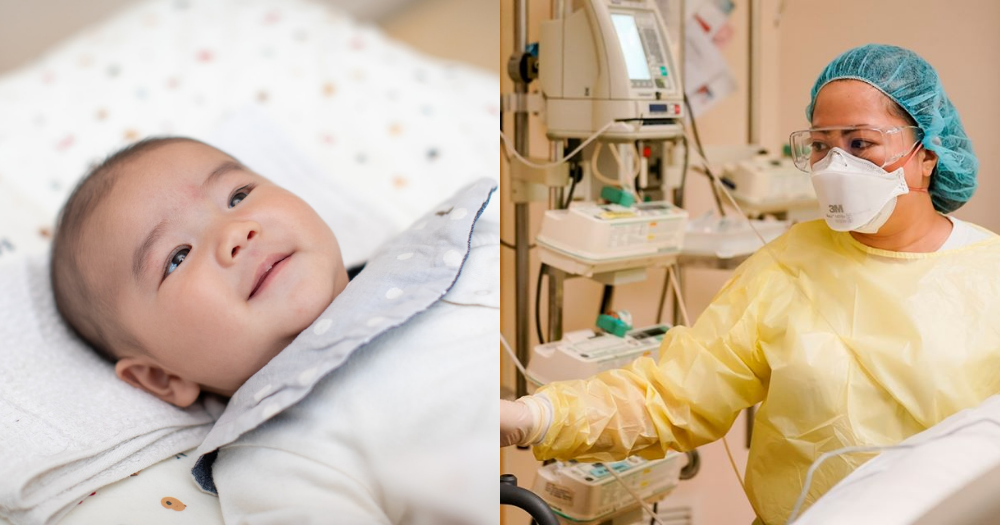The year of 2020 — of living through a global pandemic — has been a stressful and difficult time for many.
And, unfortunately, the difficult times don’t seem to be letting up anytime soon, and the future continues to be unpredictable.
Two groups of people who may be feeling worried about their future decision-making with regard to the risk of Covid-19 are expectant parents and people who are thinking about conceiving.
Can contracting Covid-19 be harmful to a mother and baby?
Is it even safe to go to the doctor for routine check-ups needed during pregnancy?
Should hopeful parents wait until after the pandemic passes before they have a baby?
Well, we’ll be honest — we don’t know the answers to these really tough questions.
So, we spoke with someone who does — Dr. Tan Lay Kok, Senior Consultant Obstetrician and Gynaecologist at the Singapore General Hospital (SGH) and President-Elect of the College of Obstetricians and Gynaecologists Singapore (COGS) — to ask him all of our burning questions about pregnancy during Covid-19.
 Photo courtesy of Tan.
Photo courtesy of Tan.
Here’s what he told us:
What concerns have pregnant women, or women hoping to get pregnant, shared with you during this time?
“They worry about being infected by the Covid-19 virus during pregnancy and adverse consequences to themselves and their babies.
Uncertainties and misconceptions surrounding their care during their pregnancy, the delivery process of the baby, and care after delivery may also be present.”
Are pregnant women more at risk of getting infected by Covid-19? And what can they do during pregnancy to minimise risks of contracting Covid-19?
“Pregnant women should practice safe distancing and good hand hygiene, avoid crowded areas, and ensure that their masks are worn properly when they leave their homes.
Women should be reassured that they can continue wearing masks during their pregnancy, as it will not affect them or their babies. (They will be allowed to remove their mask when they are in active labour in the hospital’s labour wards.)
These measures should be strictly observed throughout their pregnancies, particularly in the second and third trimesters, as data from around the world show that the majority of infected women who are hospitalised for Covid-19 occur during this period.”
Dr. Tan also pointed us to a set of Frequently Asked Questions (FAQs) on pregnancy during Covid-19, which was just released by the Academy of Medicine Singapore (AMS), College of Obstetricians and Gynaecologists Singapore (COGS), and Obstetrical and Gynaecological Society of Singapore (OGSS).
According to the FAQs, based on existing medical knowledge, it does not appear that pregnant women are at a higher risk of being infected by Covid-19 compared to non-pregnant women.
 Photo by freestocks on Unsplash.
Photo by freestocks on Unsplash.
But is it even safe for pregnant mothers to visit hospitals or antenatal clinics during this period of time?
“It is safe to visit clinics and hospitals during this time.”
According to the FAQs, all hospitals and clinics have strict screening and preventive policies in place including safe distancing.
All visitors to hospitals and clinics are screened for symptoms, travel and contact history and have their temperatures checked.
Some hospitals and clinics limit the number of accompanying persons allowed as well.
There is no need to modify the schedule of antenatal visits and tests.
What happens if pregnant women get infected by Covid-19 during pregnancy? How can Covid-19 affect them and their pregnancy?
“Most infected pregnant women recover from Covid-19 and do not suffer serious symptoms.
Data from international centres consistently show that women who do become ill as a result of contracting Covid-19 are older women (above 35 years old), obese (body mass index over 30), and who have co-existing medical conditions like hypertension and diabetes.
There is also an increased risk of preterm birth, particularly in those with severe disease.
Women should therefore have their antenatal care and delivery in hospitals [that are] capable of managing preterm births and looking after preterm babies.
All hospitals providing maternity services in Singapore are equipped to do so.
Covid-19 infection appears to increase abnormal clotting in patients, and as pregnancy itself naturally has an increased clotting tendency, doctors looking after infected pregnant women may give anti-clotting medication during and after the delivery as a safety measure.
These medications do not harm the babies.”
Is it more difficult for pregnant women to recover from Covid-19?
“There is no evidence that pregnant women who are infected by Covid are less likely to recover from the infection.”
According to the FAQs, all of the pregnant mothers with Covid-19 in Singapore so far have fully recovered.
The majority of mothers around the world have also recovered. Only a small proportion of them required oxygen supplementation and ICU care, according to reports.
What are some misconceptions people have about conceiving during this period, and do you think that these misconceptions impacted their decision-making about when to have children?
Tan said that it “would not be surprising” if couples would delay having children because of misconceptions about conceiving during the Covid-19 pandemic.
“Based on a survey of 167 pregnant women attending clinics at the Singapore General Hospital and KK Women and Children’s Hospital, almost half of the women thought that there was a high risk of transmission of the Covid-19 virus to their babies if they were infected during pregnancy, and an even higher proportion thought the risk of infection to their babies was high after delivery.
One-third of those surveyed thought that miscarriage would be likely if they were Covid-19 positive.
57 per cent of pregnant women thought it was unsafe for infected women to have close contact with their babies after delivery, 39 per cent would not breastfeed because of Covid-19 positivity, and two-thirds would separate themselves from their babies for two weeks.”
However, according to the FAQs, studies have shown that the rate of neonatal infection is no greater when the baby remains with the mother, or if the baby is breastfed with proper infection control practices in place.
Evidence has also shown that there is no active replicating virus in the breast milk, and breast milk contains many protective factors against a variety of infections.
Hence, Covid-19 positive mothers do not routinely need to separate from their babies, and they can continue with breastfeeding.
However, caution must be exercised during breastfeeding to minimise any risk of transmission to the baby, by wearing a mask and maintaining good hand and personal hygiene at all times.
In certain situations, mothers may also express their milk to be given to the baby by a carer.
So is it true? Can the virus be passed from the mother to the baby in the womb, or upon birth?
“There have been reports of transmission from mother to baby both in the womb and upon birth, but the risk is low, based on data from around the world.
In Singapore, none of the babies born to infected pregnant women tested positive for Covid-19.”
Studies have also shown that the rate of neonatal infection is no greater when the baby remains with the mother or if the baby is breastfed, according to the FAQs.
Covid-19 positive mothers, thus, do not routinely need to separate from their babies, and can continue with breast-feeding.
If the mother is infected with Covid-19 during pregnancy, is there a greater risk of her baby having abnormalities?
“There is no evidence of foetal anomalies arising from maternal infection.”
The FAQs explain that Covid-19 does not affect one’s risk of genetic or chromosomal abnormalities such as Down syndrome.
Are babies at higher risk of contracting Covid-19 infection? How can parents keep their newborns safe?
“There is no evidence of babies having a higher risk of contracting Covid-19. The risk of catching it in the womb or during delivery is very small.
Parents can keep their newborns safe by avoiding crowded places and observing safe distancing measures and good hygiene habits such as washing hands and wearing masks if they do have to bring their newborns out of the home.”
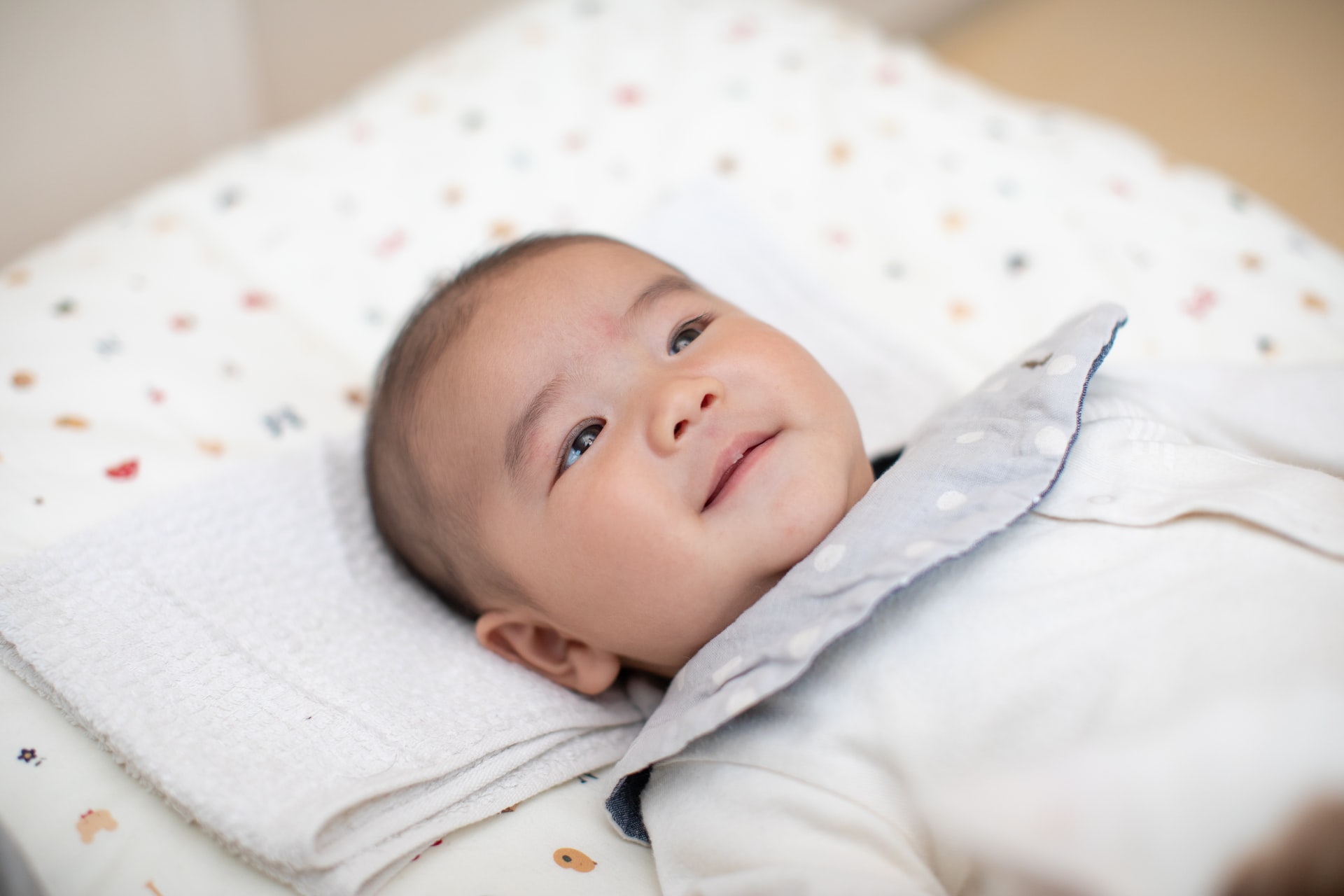 Photo by kazuend on Unsplash.
Photo by kazuend on Unsplash.
In a recent survey commissioned by NPTD and MSF, about three in 10 respondents said that they would delay their plans to have children due to Covid-19. What advice do you have for these couples, and is there scientific evidence for what age is the most optimal or safest to have children?
“I would advise that there is no reason to delay their plans to have children. Our current local community reports extremely low to no numbers of new cases, and even in countries where the pandemic is much less well-controlled than Singapore, there is no health policy discouraging couples from having children.
Until an effective vaccine is available and the rest of the world contains the infection rate, it is unlikely that the current situation will change or improve significantly in the foreseeable future.
Delaying having children in the meantime would mean an increase in the age of the couple, and particularly the woman when she eventually decides to have children.
This has important implications if the woman’s age is above 35 years old, as pregnancies above this age carry a higher risk to both the mother and the foetus, and the risk increases incrementally as the age increases.
Likewise, there is a natural fall in fertility with increasing maternal age, with a significant decrease at the age of 40 and beyond.
I would also add that couples who are considering having children at this point in time improve and optimise their pre-pregnancy health status.
This would include attaining a healthy body mass index, stopping unhealthy habits like smoking, and getting their necessary vaccinations including the latest influenza vaccination.
At this present time, Singapore is arguably one of the safest countries to get pregnant.
This, coupled with our stringent screening precautions and measures keeping local infection rates low, our robust health systems to optimally treat Covid-19 infected women, as well as the generally good pregnancy outcomes for pregnant women infected with Covid-19 and very low transmission rates to their babies, should reassure couples thinking of having children.”
Find out more
Made For Families is a government-led initiative that aims to assure families in Singapore of support from the government and community at large.
You can find more information about the comprehensive suite of support that is available to support Singaporeans at every stage of their marriage and parenthood journey here.
You can check out these handy infographics by Made for Families on the topic of pregnancy during Covid-19:
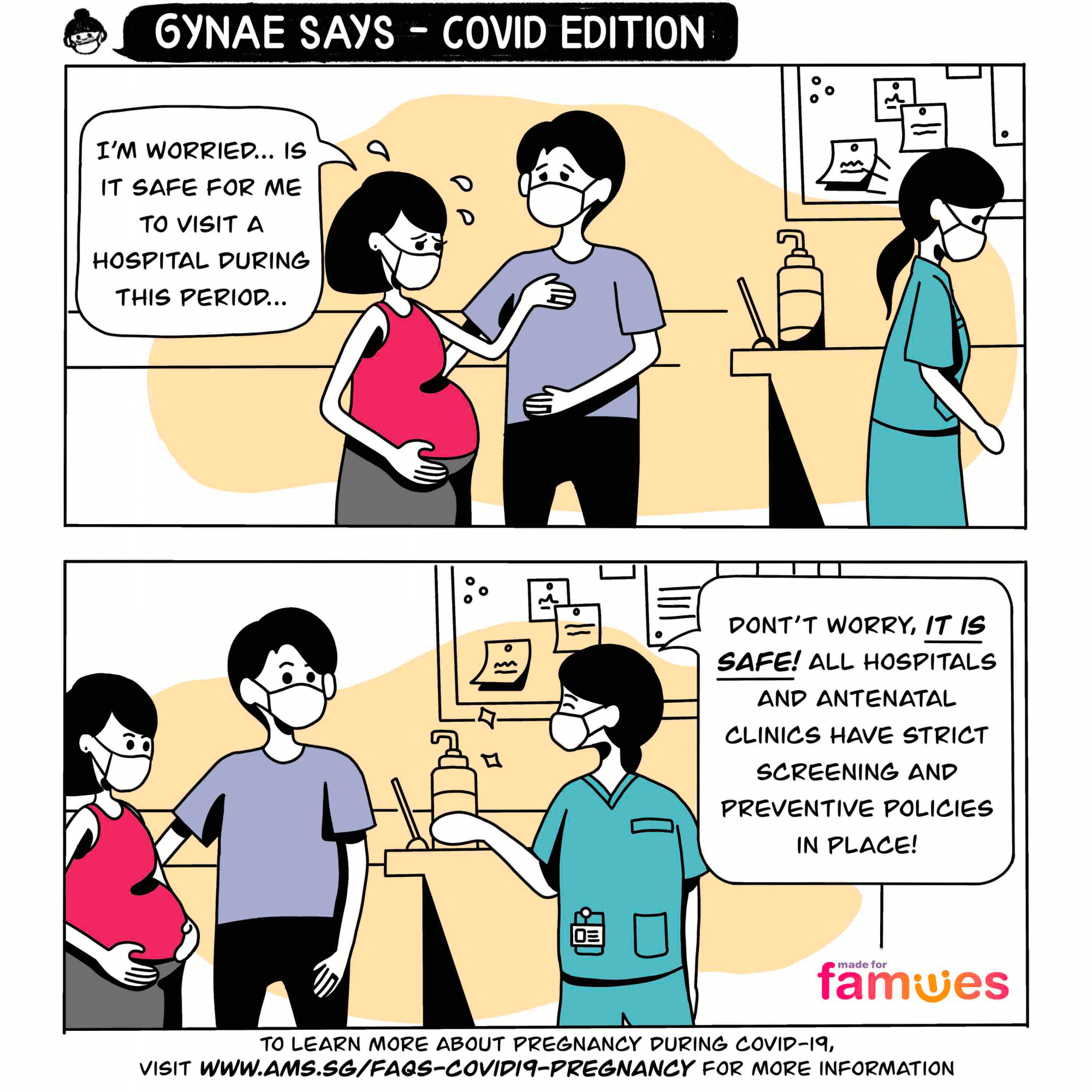
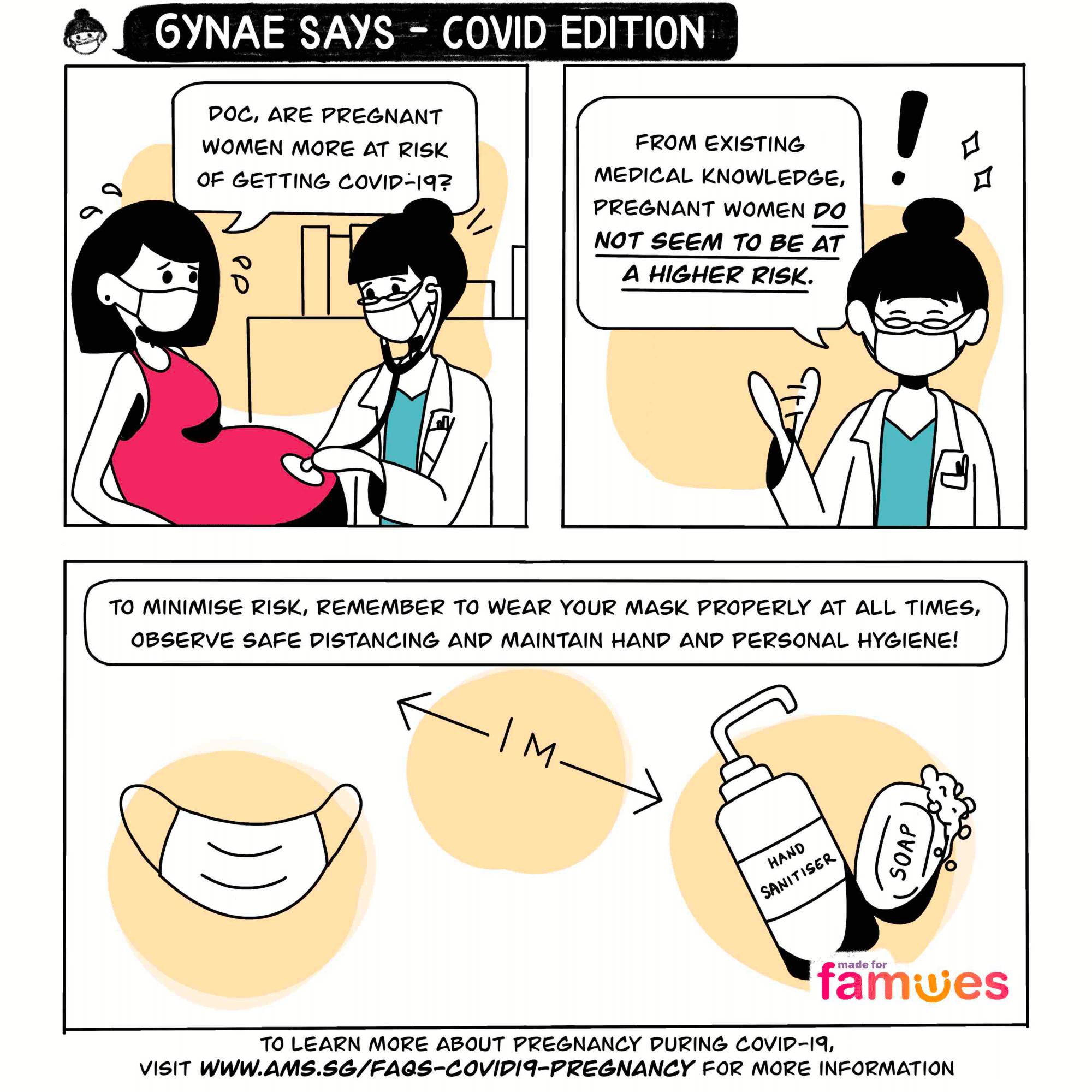
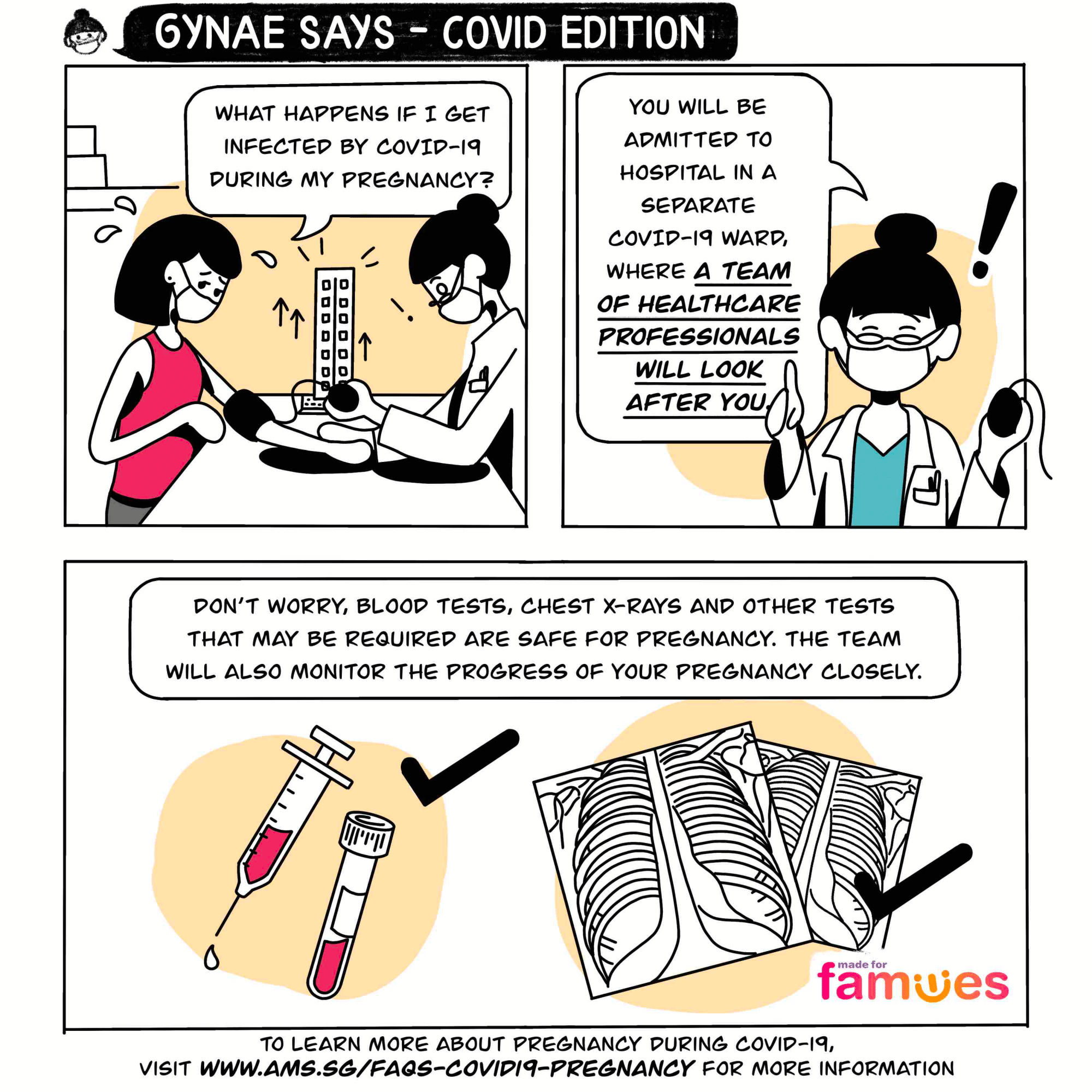
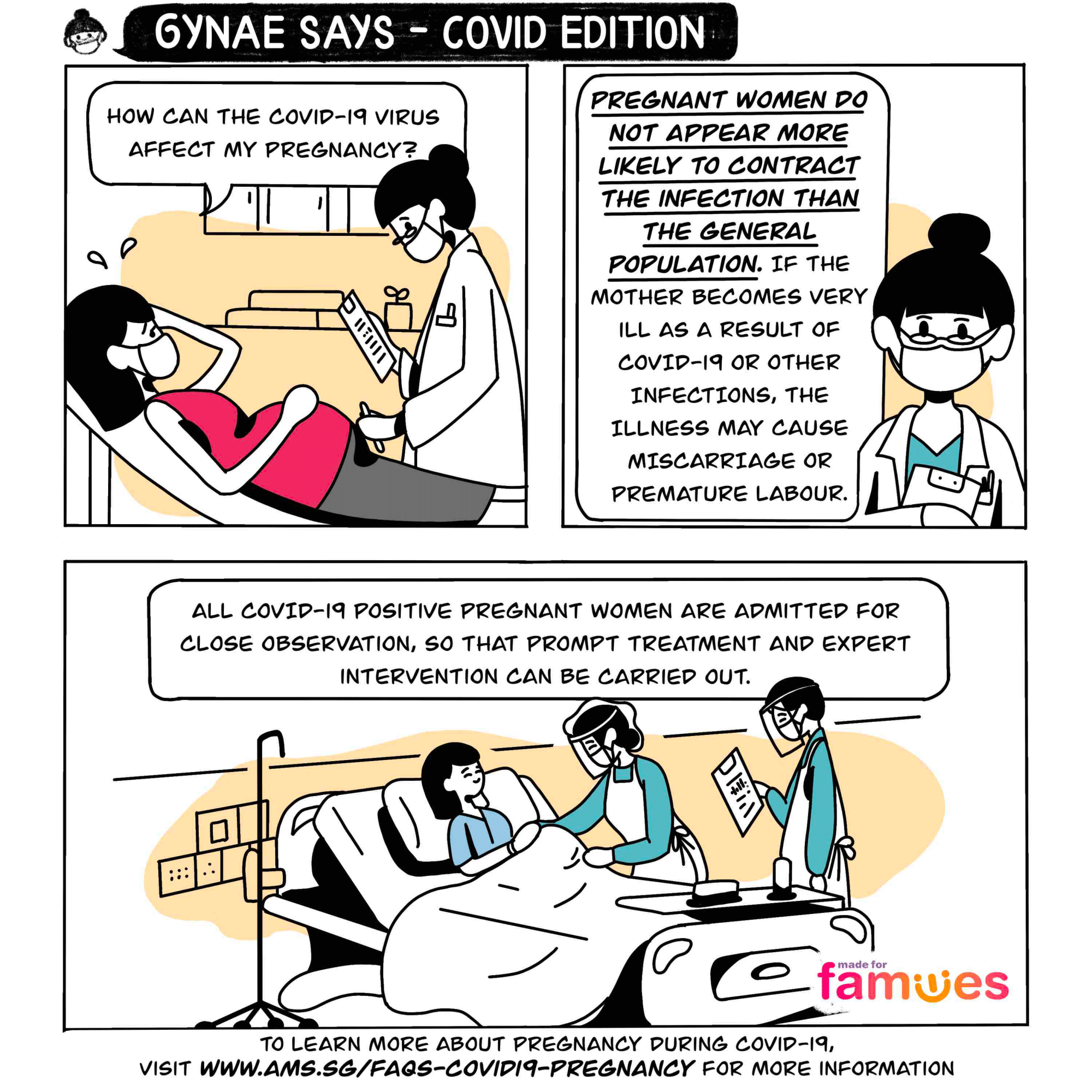
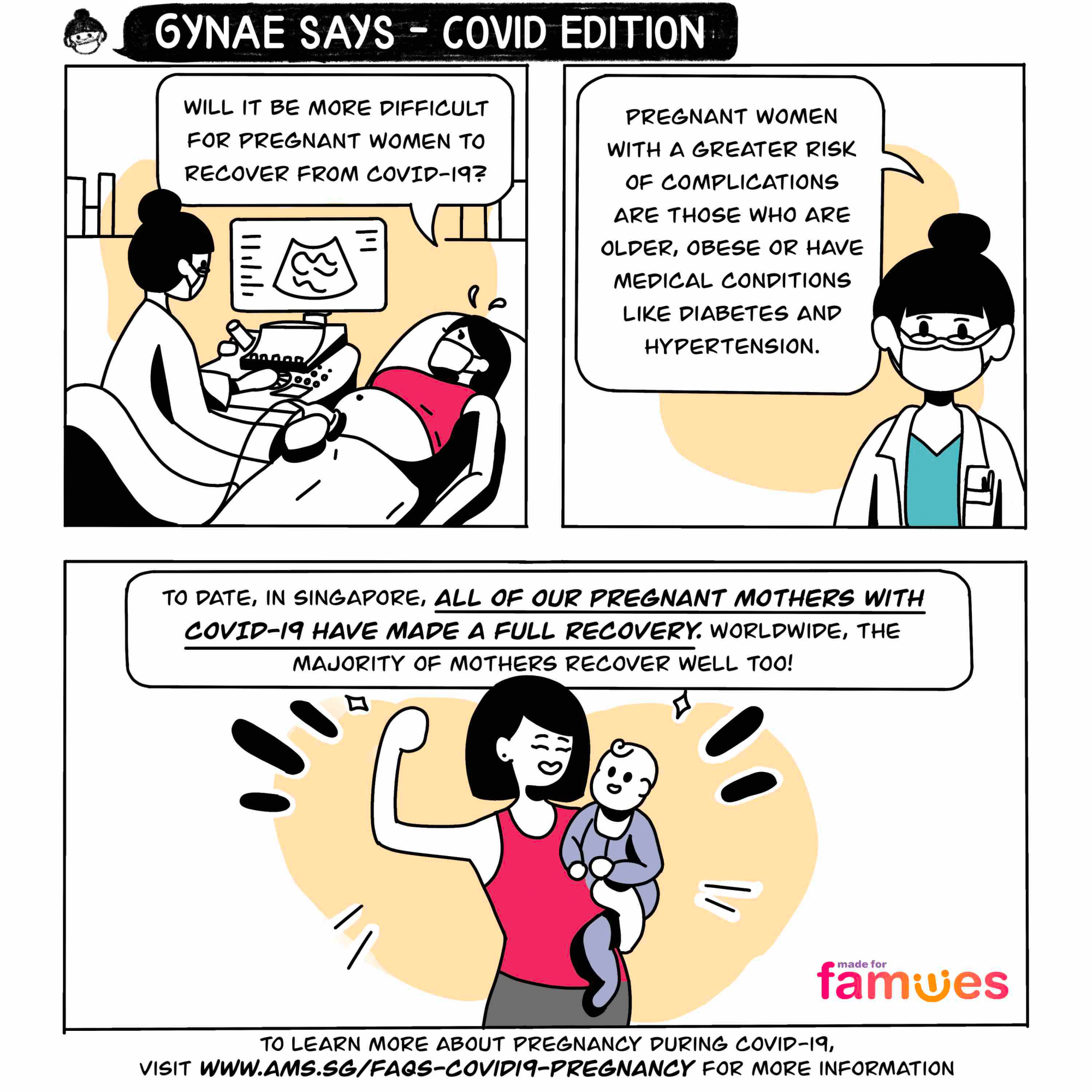
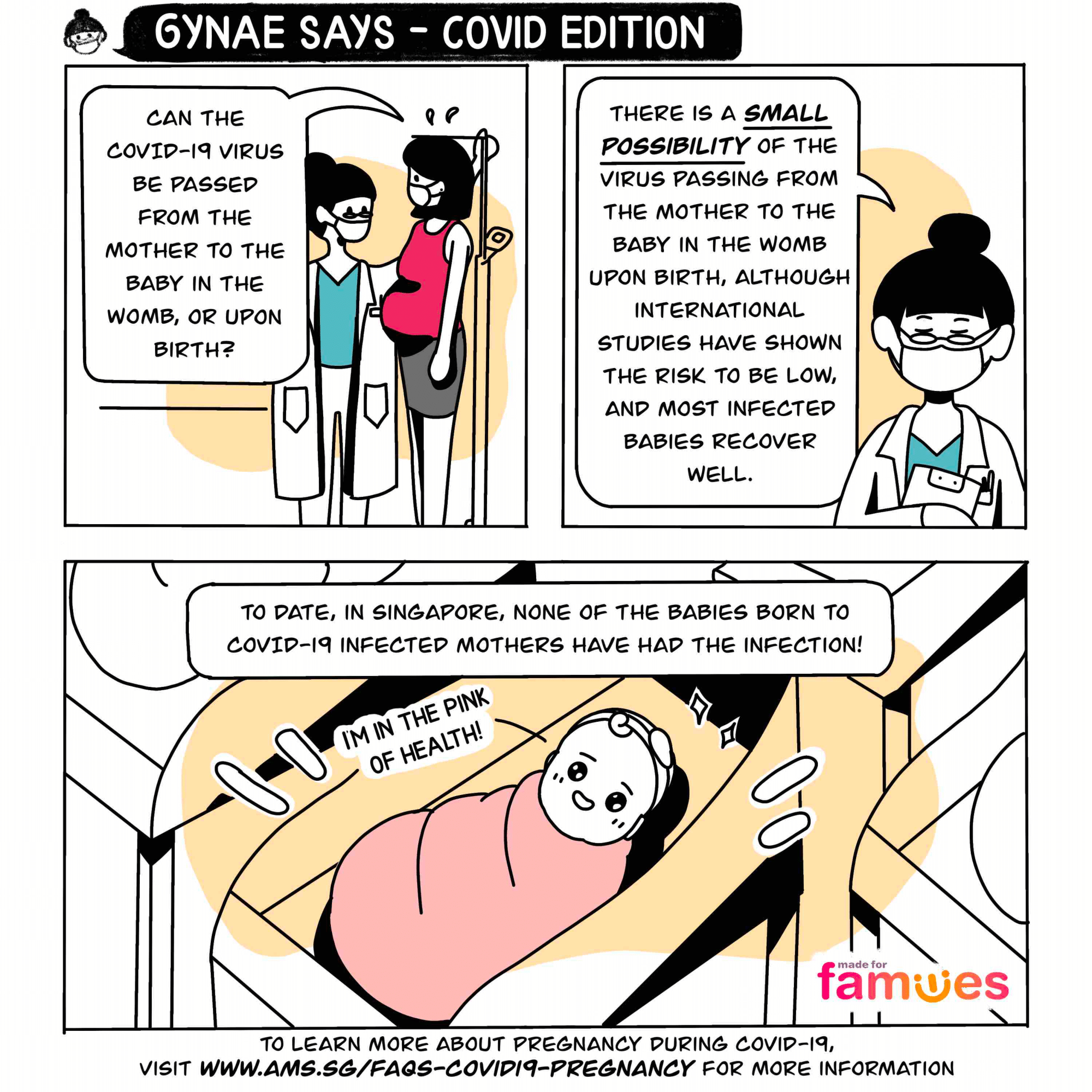
This sponsored article is brought to you in partnership with Made for Families.
Top photos by kazuend on Unsplash and Facebook / NUH.
If you like what you read, follow us on Facebook, Instagram, Twitter and Telegram to get the latest updates.
